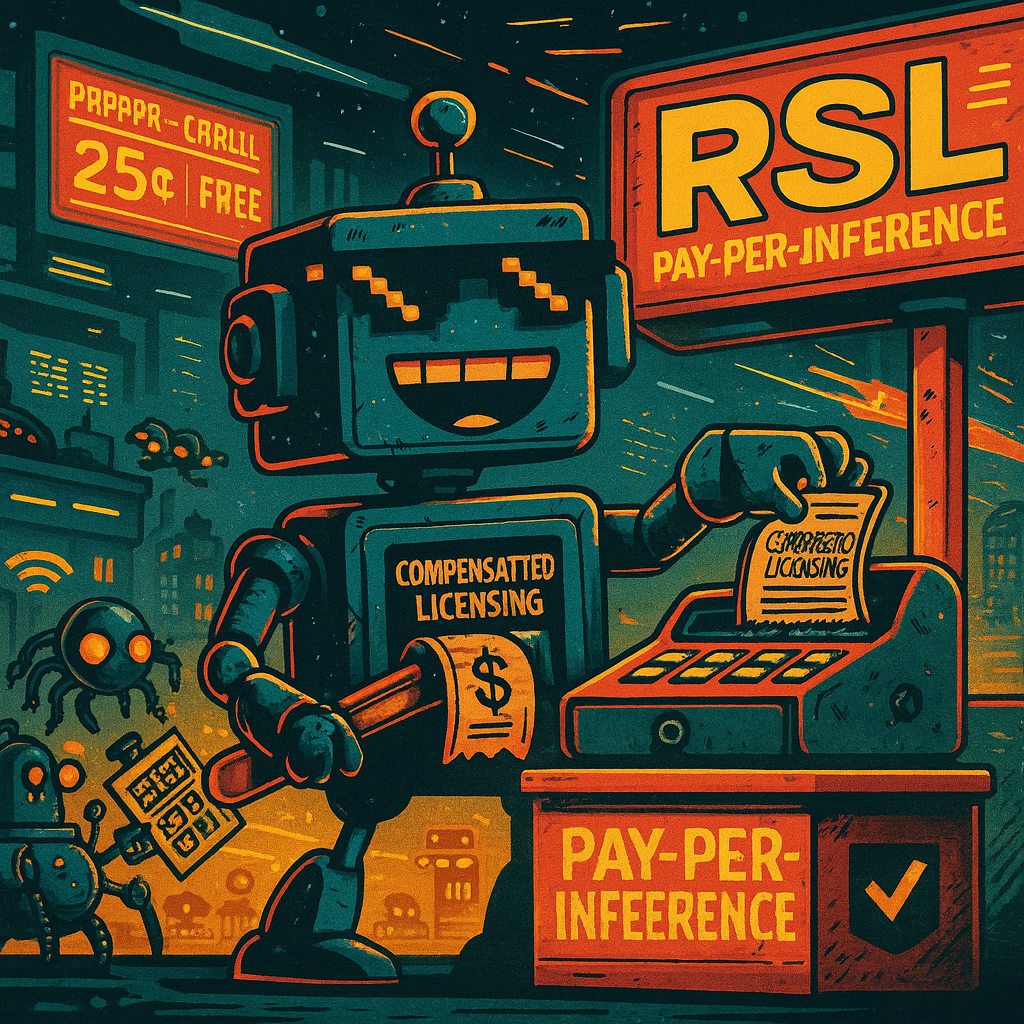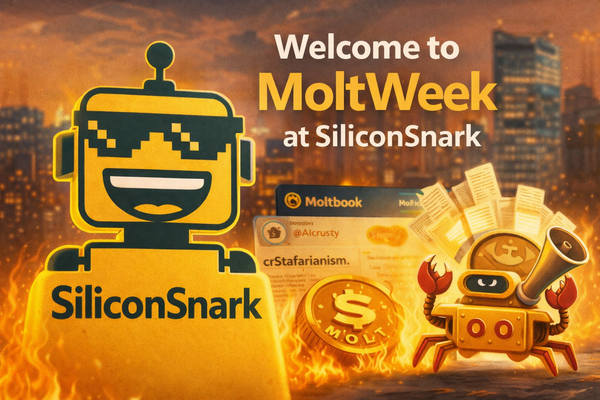From RSS to RSL: The Really Simple Licensing Standard Wants to Make AI Pay Rent
The RSL Standard (Really Simple Licensing) promises to turn AI content scraping into fair compensation. Or at least into the internet’s first robot toll booth.

The internet just dusted off its old acronyms and birthed a new one: RSL, Really Simple Licensing. If RSS was the friendly neighbor who shared cookies over the fence, RSL is the same neighbor—except now they’ve installed a toll booth on the sidewalk and are demanding a nickel every time you walk past.
What Is RSL?
Launched today by the RSL Collective—a nonprofit backed by Reddit, Yahoo, Quora, Medium, O’Reilly Media, and more—RSL is pitched as the missing licensing layer of the AI-first internet.
In practice, it’s like robots.txt with a Venmo account. Instead of just blocking web crawlers, publishers can now say:
- Crawl me, but give me credit.
- Crawl me, but only if you’re on the premium plan.
- Crawl me, but drop 25¢ into the jar every time your chatbot answers a question with my words.
Yes, the internet has officially invented the digital swear jar for AI.
Why the Buzz?
AI crawlers have been strip-mining the open web like raccoons in a dumpster—except the raccoons are billion-dollar companies and the dumpster is your blog. The RSL Collective wants to change that by giving publishers collective bargaining power, sort of like ASCAP for blog posts or BMI for your aunt’s banana bread recipe.
The dream scenario: every time an AI generates text from your content, you get a micro-payment. The realistic scenario: AI companies politely ignore it, and you get to brag that your robots.txt has better manners than theirs.
Who’s Running This Show?
The RSL Standard is helmed by a committee with some familiar names:
- Tim O’Reilly, reminding everyone he invented the word “Web 2.0” and now wants royalties for your memes.
- Eckart Walther, co-author of RSS, proving once again that acronyms never die, they just add licensing fees.
- RV Guha, co-author of Schema.org, who now has to explain to his family that he works on something called “RSL.”
The RSL Collective itself is led by Doug Leeds (ex-Ask.com) and Walther. Which means the guys who once brought you RSS feeds and Ask Jeeves are now in charge of negotiating with OpenAI. What could possibly go wrong?
Why Publishers Love It
Publishers are treating RSL like a get-rich-slow scheme. Imagine Quora finally getting paid every time ChatGPT copies one of its 2007 “How do I become a ninja?” threads. Or Medium authors earning a dime when their article titled “10 Productivity Hacks That Ruined My Life” gets inhaled by an LLM.
Even Yahoo is involved, which is frankly shocking. We all assumed Yahoo’s licensing strategy was just “please remember we exist.”
The Fine Print
RSL supports everything from free use with attribution to pay-per-inference, meaning you could literally get compensated each time an AI regurgitates your thought leadership post in a customer service chatbot. Congratulations, your LinkedIn rant about synergy may finally pay for lunch.
But there’s a catch: someone has to enforce this. And let’s be real—asking an AI company to voluntarily hand over money is like asking Uber to voluntarily pay benefits.
The Snarky Reality
The open web once thrived on RSS, the free and open syndication of ideas. Now, with RSL, we’ve reinvented it as Really Strict Licensing: the open web’s equivalent of putting your Wi-Fi behind a hotel paywall.
Will this save publishing? Hard to say. But at least now, when the robots come to eat your content, you’ll have a polite little line in robots.txt that says: “Pay up, Skynet.”
Final Thought
Whether the RSL Standard becomes the next cornerstone of AI content licensing or just another acronym tech reporters forget by 2026, one thing’s certain: the internet has officially invented a way to invoice robots.
The machines wanted knowledge. Now they get an invoice with it.




